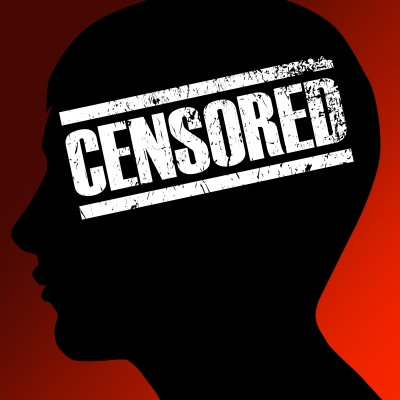
by Azra Naseem
The ‘People’s’ Majlis is about to kill the people’s right to freedom of expression.
The law was proposed by a PPM MP, Jaufar Dawood. It seems to me he had little say in its drafting – otherwise he wouldn’t have called it the Deformation Bill. It will be supported by all but a couple of PPM MPs, and most who belong to the so-called ruling coalition. Jumhooree Party’s Qasim Ibrahim—the great defender of democracy—fled the country ahead of the vote, no doubt hoping it would save him from the President’s wrath (in the form of attacks on Qasim’s fat wallet) if he votes against the Bill. Opposition MDP has issued a three line red whip to attend and vote against the Bill.
Very few of the MPs who will pass the law have any knowledge of, or the brain power to comprehend, the legal minefield that is the offence of defamation, and the tightrope between the right to freedom of expression and the right to a good name that it requires legislators to walk.
As the ruling party—many leading figures of which are implicated in some of the biggest corruption scandals in the history of the country and/or have benefitted handsomely from the culture of bribery, graft and embezzlement that characterises the current regime—PPM was anxious to push the Bill through the parliament with as little discussion and debate as possible. To ensure this, it closed the door it, in a moment of unintended democracy, opened to public feedback; invited a legally non-existent entity by the name of the Fiqh Academy to advise the parliamentary committee on the Bill; recalled MPs even from religious pilgrimages to come home and vote for it; and shut out all dissenting opinion from every stakeholder other than supporters of the regime who stand to benefit from a total media blackout on their illegal activities.
In the end, after just an hour and 15 minutes of chit-chat among seven PPM MPs who ignored the remaining two opposition members, the Bill was passed with a few small changes—none that were proposed by opposition MPs, or by media organisations.
Dissecting the new law
So what does this new piece of legislation do? And why is there such an outcry against it among journalists and other thinking members of society?
To start with, it is a direct full-frontal assault on the right to freedom of expression guaranteed by Article 27 of the Constitution, and Article 19 of the UDHR and the ICCPR, both of which the Maldives is party to. It does so to such an extent that even holding an opinion—not just expressing one—and ‘seeing things as one wishes to’, are deemed material subject to prosecution and punishment. How a person’s unexpressed opinion can be policed is yet to be known, but I am sure the Attorney General—or whoever the President instructs to draft new regulations—will find ways.
Basically, the law restricts freedom of expression—that is, it criminalises defamation—on four different grounds: (1) protection of religion; (2) protection of national security; (3) protection of an individual’s right to a good name; and (4) protection of ‘norms’. I will discuss them in the order they appear, as they appear, in this new law.
(1) Protection of religion
Protection of Islam, including speech and action against any tenet of Islam is already protected by the Constitution.
Invited to ‘advice’ the parliamentary committee reviewing the draft Bill, the ‘Fiqh Academy’ equated freedom of expression with anti-Islamic behaviour and called for, in the name of religion, absolute obedience to the leader whatever their crimes. Yesterday, the Islamic Minister said protection of a person’s right to a good name was among the reasons Islam was revealed as a religion. The stand here is clear — only religious authorities allowed to speak on this would be those who favour the Bill, and those who would use religion to help Yameen pass the Bill the way he wants.
It is a good thing my fellow blogger, Hudhuhan’dhu, published her dissenting opinion on this matter last night, with a few hours to spare before the MPs hit the button to say yes to killing freedom of expression.
What does the new legislation do to ‘protect religion’?
It prohibits any speech and opinion that mocks Islam, and that which questions the validity of its origins. These are provisions already covered by the Maldives Constitution; and this is not an argument against the Constitution but a dissection of a Bill that infringes on the rights guaranteed by the Constitution.
What is problematic in this new law here, therefore, is its regulation of speech to protect the ‘religious unity’ of Maldivians. It will be an offence to ‘destroy’ this unity, and express opinions that would ‘create religious thoughts, divisions [and] fitna’.
The said ‘religious unity’ is not defined.
Today’s Maldivian society is not religiously uniform, apart from adherence to Constitutional requirement to be Muslims. An increasing number of Maldivians follow Salafism, some adhere to the Wahhabi variant, others follow different ideological paths of the Salafi spectrum: some are purists, others apolitical or conservative, quietists, quietist-rejectionists, activist-challengers, and of course, Salafi-Jihadists. Many of them are calling each other non-Muslims and fighting amongst themselves. Another large segment of the population are so far out of the Salafi circle.
So what imagined ‘religious unity’ are we talking about here?
More importantly, what form of ‘religious unity’ is the government intending to impose on the population with the use of this law? The legislation will find anyone who attempts to disseminate religious knowledge without the permission of the Islamic Ministry in breach of this law – which of the religious segments will get approval? Whose voices are going to be cut off, who is going to be fined, and who will be thrown into jail? Given the close ties the government has formed with Saudi Arabia, and the ‘religious unity’ agreement signed between the two countries, it is very likely that this new legislation will pave the way for Saudi Arabian religious practices, and only those religious practices, to be allowed in the Maldives.
(2) Protection of national security
This includes opinions that incite acts of terrorism or armed aggression, which is fair enough, if applied fairly.
What is extremely worrying is the prohibition of ‘opinions that damage national security or sovereignty’.
What does such an opinion entail? According to the law, this would be measured by whether or not the opinion expressed is accepted or not as a threat to national security by a sane person.
This is terribly vague.
How sane does the person have to be? Is everybody equally sane, or are there varying degrees of sanity? Does every ‘sane person’ have a uniform agreement on what a national security-threatening opinion looks/sounds like? Does every sane person have the same opinion of what national security is?
Some people (I believe with a certain degree of sanity, at least enough to seem to lead a functional life) believe that talking of the corruption rife among senior figures in government—even with proof—creates disharmony among the public, which leads to public disorder (peaceful protests), which are then seen by this ostensibly sane people as a threat to national security. Or, sane people have also deemed those who supposedly summon Jinnis to locate bombs visible only to the paranoid eye as threats to national security…With a definition as vague as this, even the supernatural may not escape this law. How then can normal democratic rights hope to survive?
(3) Protection of an individual’s right to a good name
This is a basic right, guaranteed by Article 33 of the Constitution.
This new law jumps on top of the Constitutional guarantee and criminalises the publication of a false statement that damages the reputation of another; retains the right for the damaged party to pursue the case in civil court; and clarifies that people are free to publish statements that may damage the reputation of an institution but not those who run it, or work in it.
For example, people may speak of alleged corruption in—say the Sadhagath Foundation run by the First Lady, but cannot state or imply that the corruption has anything to do with the Lady who runs it. What is most worrying, apart from the criminalisation of defamation, is the lack of exemptions and protections provided by this law to those whose profession it is to talk about other people and their activities. These will be addressed later in this analysis.
(4) Protection of norms
This is a funny one, with more holes in it than a piece of Swiss cheese.
First, ‘norms’ are socially constructed, they are constantly transforming with cultural shifts, changing beliefs and other temporal and physical factors. What is normal at this moment in time is not what was normal in the past, and not what will be normal in the future. What is normal also changes from person to person.
According to this law, it is a crime to express opinions that are contrary to how people ‘normally behave’ in society, or opinions that are against how people would normally behave in public places, or against the behavioural norms that people would normally follow, or against how a media with responsibility to serve the public would normally act, or against the codes of conduct that would be publicly followed.
Would. What are these abstract standards that normal people would follow in an imagined normal society? Who are these paragons of normality that are not seen but would uphold these standards if they did exist?
There are some guidelines for keeping on the right side of this imagined community. Don’t: incite damage to person and property; express opinions that incite harm to a person, life, or property; advertise alcohol and drugs; expose any material deemed as ‘secret’ by any regulation; publicise any material that facilitates a negative perception in society of ‘women, people with special needs and children’; express opinions that encourage sexual and obscene activity; and engage in talk, within hearing distance of minors under 18 years of age, that would negatively influence their thinking.
Where would the authorities even begin policing the last two?
Who is not allowed to express opinions that encourage sexual activity? Would it apply to flirting between courting couples who are consenting adults? What is obscene activity? In today’s Maldivian society, even holding hands by unmarried men and women can be considered obscene by some people — would that mean jail time?
And who are these adults not allowed to talk in ways that would negatively influence minors? Would it apply to the parents of these children? Or does it have to be a stranger? What is considered negative influence? Can a discussion about Pokemon Go—deemed by some religious authorities as un-Islamic—lead to punishment under this law? Can talk of the Maldivian Idol? Kim Kardashian? ‘The West’? Mohamed Nasheed? Democracy?
What is defamation?
What this law defines as defamation is: publication of a statement whether spoken written, drawn, illustrated, or gestured that can be depicted, thought of, or inferred as damaging to a person’s reputation in the eyes of a third person or society at large.
Notice there is a very important word missing from this definition: false. In all definitions of defamation I have come across, it is the publication of a false statement that is the key, pre-eminent word. In this piece of legislation, the word is introduced only in the second clause of the Article (11) which defines it. Clause (b) goes on to say that the definition of defamation includes the publication of a false statement that lowers a person’s standing in the eyes of right-thinking members of society, or has a negative impact on the regard right-thinking members of society have for that person, or causes right-thinking people to hate the person, or leads to the person’s ostracisation. Clause (c) clarifies that such statements do not have to be clearly stated – they can also be implied.
This definition is not too different from most definitions of the offence as accepted in many democratic societies. What is missing are the many qualifications that usually come with this definition. One such example is, how will the identity of the implied recipient of the defamatory statement be established? No such provisions are given.
Publication
In most defamation law in democratic societies, a statement is regarded as published if a third person—a person other than that to whom the defamatory statement was addressed—is made aware of the said statement in the various ways specified.
In this law, however, publication is regarded as making such a statement—be it in writing, speech, illustration, picture, or audio—in a way that can be seen, heard, thought of, or inferred by the public. Publication also includes acts and gestures made in public view that can be felt and inferred as defamatory.
This to me suggests this law is not about the protection of an individual’s right to their good name, in which case the making of such a statement to even one other person would be regarded as defamatory. That it has to be made publicly, to the public at large, suggests the purpose of the law is more to restrict organs of public speech—such as the media and other public fora. To protect public figures who the media would talk about.
This becomes more evident in light of Clause (3) of Article 12, which goes on to say: publication also includes online newspapers, blog spots, websites, social media, registered newspapers and magazines, unregistered newspapers and magazines, and broadcasting via radio and television.
If this law was about the protection of an individual’s right to their good name, these specifications would have not been necessary – saying that any third person hearing/seeing a false statement made by an individual against another that damages the reputation of the latter would have been sufficient.
Damages
Those seeking damages in defamation cases, according to this law, have one recourse: the existing law on providing damages in defamation. In the original draft, as proposed by Dawood, the Attorney General was to have been given three months from the ratification of this law to make the necessary amendments to existing laws on damages.
Yesterday, during last minute changes brought by the parliamentary committee, this three month grace period was done away with. As passed by the parliamentary committee, the awarding of new damages will start from the moment the President ratifies this law. Apparently it matters little that no legal mechanisms to do so will exist.
Defences
Here, where the law should perhaps be strongest, is where it is at its weakest. As is found in defamation laws in most democratic countries, there are no absolute privileges—instances where the intentions of the publisher of the alleged defamatory statement is irrelevant and is therefore absolutely exempt from prosecution. What is said in parliament and in courts, for example, often fall into the category of absolute privilege—no matter how malicious the person who made the statement is being, and how untrue the allegation made might be, if they are made during a session, they are exempt. And this applies to the journalists who report these defamatory statements accurately and contemporaneously.
In the law that will be passed by the Majlis today, even these privileges—called ‘official privileges’—are qualified. Statements made in the parliament, Majlis and Cabinet, are protected only if they are made ‘according to the relevant regulations and codes of conduct’. The dangers of having these qualifications in a country such as the Maldives is that Judges, the Majlis Speaker, and the President, can change the accepted rules and codes of conduct st any given moment—right in the middle of an alleged session or even a defamatory statement—making the defendant immediately liable for libel.
Other ‘Official privileges’ include statements made and documents exchanged during an investigation by an official authority; and publications by the Majlis or a court.
Statements made, and material publicised during and for the purposes of education or in the pursuit of knowledge in schools by teachers, educators, experts, technocrats and other such figures—with good intention—is included and protected as freedom of expression.
Accurate coverage of and discussions related to these statements made under ‘official privileges’ can be accepted as a defence against defamation, as are coverage of and discussions related to official publications by a foreign organisation, court, or legislative body.
Exemptions
Interestingly, the new law has a [very short] section titled “Instances that cannot be considered as national security threats”. There is just one: Peaceful activities in support of or against various issues, carried out according to legal standards outlined by this law, while exercising the legal rights accorded to citizens and are conducted within legal boundaries cannot be considered as expressions of opinions that threaten national security.
Did you catch a glimpse of the rights to freedom of assembly and freedom of expression guaranteed by the Constitution sandwiched somewhere in there between the many conditions and qualifications?
The second clause in this section deals with defences in expressing opinions that threaten national security: ‘expressing an opinion that calls for protection of a circumstance unrelated to national security’ [I did not make this up – this is a verbatim translation]; and, expressing an opinion that says a government institution must not have the opportunity to keep its operations secret.
Seriously – that is how far freedom of expression stretches—the right to say that an institution must be transparent. Other than that—for example, name the leader of the said institution and say he or she should not be allowed to keep the institution’s operations a secret—expect to be done for breach of national security.
There is similarly another very short section which is titled – Instances that would not be considered defamatory. These are when the statement made or opinion expressed is truth; when the statement made or the opinion expressed is made with due respect, in an official, or intellectual way, or at such a forum; and, when the statement made or the opinion expressed is to carry out an official responsibility or duty and is made with protection of the law.
A last minute addition, made yesterday evening, included a provision that can be seen as a nod to artistic license: a film, drama, song, story or any other production that does not refer to a particular person, based on fictitious events, produced with sufficient notice, will not be regarded as defamatory.
It cannot be argued that the truth is an absolute defence to defamation. But what are the other clauses doing here? Since when did due respect become a term defined in law? And what is ‘an intellectual way’? Will discussions on media by experts be regarded as intellectual, or are experts to confine their discussions to classrooms only? Can journalistic analyses and commentary be regarded as carrying out an official responsibility, or would ‘official’ capacity be defined as only those working for the government, or a body of the State? Why is there such an emphasis on protection of the ‘official’, and not much about the protection of the individual when the law is supposed to protect an individual’s right to their good name? To who should notice be given of someone’s intention to write a song? A book? And what is ‘sufficient notice’?
Responsibilities of the Media
That there is an entire section detailing the responsibilities of the media is telling.
Also tellingly, it starts with an Article titled, ‘Determining Punishments for the Media’:
If a media that commits any of the ‘crimes outlined in this law’ is a registered media organisation, it should be notified and the following actions must be taken when a complaint is lodged against the said organisation at the state institution responsible for the oversight of that organisation, or if the institution decides to investigate the media under its own initiative:
The organisation must be warned, and the warning made public; and the organisation must be instructed to withdraw the document, news, report, video, or a video/audio broadcast, or to release a statement to that effect or to apologise.
A repeat offender will be suspended or their programme schedule will be interrupted for a certain period. In addition to the said actions, the state institution must also fine the media organisation which publishes a defamatory statement between MVR50,000 and MVR 2 million. The accused media organisation is allowed to exercise its right to appeal – but only once the fine has been paid.
Very generously, the law says that if [in the very unlikely event, of course, given the judiciary] the appeal hearing finds in favour of the media organisation, the institution must refund the imposed fine.
One of the highlights of this clause dealing with the fine is that these fines go not to the individual concerned but to the state institution with oversight of the offending media organisation.
So much for a defamation bill that protects an individual’s constitutional right to a good name. In this case, why is the individual not being given the damages? Whose right exactly is being violated here? Or more importantly, whose right are the makers of this law expecting to be ‘violated’ by this law?
What happens when the media organisation cannot fork out the millions it must pay the state for damaging the reputation of an individual? Must that person be linked to the State?
The state oversight body must report the organisation to the police, an investigation must be conducted, and the police must send the case to the Prosecutor General. If the media organisation fails to pay the fine imposed within the time period decided on by the court, the court must jail the reporter who authored the statement for between three and six months.
The section also has a specific clause dealing with statements made at ‘meetings, forums and podiums’. It is described as a defence of reporting such statements, but is in fact an obstruction of it.
It starts by saying that balanced reporting, without distorting the meaning of, statements made at podiums, forums and meetings, having secured a response from the person the report is about, is a defence in defamation.
It goes further, saying: ‘not being able to contact the said person and therefore being unable to get a response from them cannot be considered a part of this defence’.
That the law makes it a point to say that reports of what is said on podiums and other such fora must be brought ‘without distorting the meaning of’ reveals just how much this law is intended to specifically protect one person: President Yameen.
The man has a habit of lashing out at the public when he addresses them from such venues—palpitating at podiums, if you like. Very often these tirades involve him putting his foot in his mouth. It then takes two Spokespersons—the Dhivehi term for this being rather aptly— Tharujamaanu, or Interpreter—to explain to the public (one to the Dhivehi speaking citizens, and the other to the English speaking international community) what the President really meant to say. This new law will force the media to wait until the two spokesmen untangle what the President actually said from what he intended to say. Or face a hefty fine, or jail.
The clause which requires, under all circumstances, that reporters wait for a response from the person about whom a report is being made is totally unfeasible in the modern media environment of rapidly revolving news cycles, and social media. A common tactic of politicians is to avoid phone calls for explanations—so, if the media cannot get hold of a politician who is deliberately hiding from them, the story must go unreported for days, even months? What about the activists on Twitter and Facebook? Must they wait for the spokespersons to provide the real meaning of something before they comment on what was said at the podium? Or spend six months in jail for 140 characters which quoted the President, or some ‘Honourable Member’ wrong? Or pay out MVR 150,000 for saying it was the President’s left foot rather than his right foot that was jammed into his mouth last time he lashed out?
Whistleblowing
Reporting, or expressing an opinion to reveal a crime being committed in an institution; an act being carried out or had been carried out that endangers the health or life of a person; to reveal an act committed by an institution that endangers the environment; and to reveal hidden illegal activities are not considered as defamatory.
Small mercies.
Wonder what the young Bank of Maldives employee, Gasim Abdul Kareem, who languished in jail for six months for revealing the massive MMPRC corruption, would make of it?
Power of Investigation and Punishment for Offenders
If a statement is made that causes damage to someone’s reputation by an individual who is not part of a registered media organisation, or if someone believes that the said statement has damaged his or her reputation, the plaintiff can report the matter directly to the police. And the police must investigate and send a file to the Prosecutor General for prosecution.
The new changes brought last minute by the parliamentary committee in charge of reviewing the law also added the incredible clause that if a defamatory statement is included in the broadcasting of a live event, the person on the receiving end of the said statement has the right to request the media organisation in question to stop the broadcast. If an individual makes such a complaint to a media organisation, it must immediately stop the live broadcast. If not, the organisation will be punished according to the stipulations of the new law. All broadcasting content produced in the Maldives, and abroad, must conform to the regulations, or face prosecution and punishment. Refusal to name journalistic sources is also to be a criminal offence, in direct violation of the Constitution.
In terms of punishment, if a person is found to have expressed an opinion that violates a basic tenet of Islam, the person will be punished under the relevant provisions of the Penal Code; if found in breach of religious preaching or education regulations as outlined in this law, they will be punished under the Religious Unity Law (6/94).
Individuals, who do not belong to a media organisation found guilty of the crime of defamation will be fined between MVR 25,000 and 2 million for defamatory statements and opinions that violate national security. A late change was also made yesterday evening which said that in imposing a fine for expressing opinions that violate the norm, the said individual’s standing in society, and the media by which the said opinion was expressed, must be taken into consideration.
Apart from the crime of breaching norms, for which media organisations must be fined between MVR50,000 and 1 million, all other offences will set them back by between MVR50,000 and 2 million. Individual journalists will be fined between MVR50 and 150,000. Unpaid fines for individuals will mean jail, and appeals will not be allowed until fines are paid in full. For media organisations, says the latest changes made yesterday evening, it would mean suspension or revoking of their licenses.
The lawmakers touted ‘other European countries which has criminal defamation laws’ as a justification for rejecting international criticism of these draconian new restriction on Maldivian freedom of expression. It is true, several states criminalise defamation. And, they too, face criticism from international organisations fighting for the right to freedom of expression everywhere. The difference is, the defamation laws in these countries also come with many protections of free speech: privileges that are absolute and qualified; recognition of honestly held opinions, not just stark divisions between true/false opinions; exemptions for journalistic, artistic, and other creative fields; protections for satire, and literature; opportunities to make amends; defences of fair publication; instances where ‘public interest’ is seen as outweighing an individual’s right to a good name; statements made without malice; allowances made for good faith; innocent publications; varying degrees of remedies, and damages to be paid out. This law contains no such nuances, no room for manoeuvre – only innocents and criminals. Reporters and the reported on, respectively, that is. Black/white, good/bad. That’s it.
People’s rights buried by people’s representatives
The above is a not so brief discussion of what is contained in the new law about to be passed by a majority of the people’s representatives in Majlis, who sit there in the air-conditioned chambers, paid in excess of MVR80,000 a month by the people to advocate for and protect their rights.
The law rolls back freedoms that Article 27 of our Constitution guarantees us. And, it is doing so in violation of Article 16 of the Constitution which says the rights guaranteed by the Constitution can only be limited by a law ‘enacted by the People’s Majlis in a manner that is not contrary to this Constitution’, and that any law enacted by the Majlis ‘can limit the rights and freedoms to any extent only if demonstrably justified in a free and democratic society.’
The Maldives is no longer a free and democratic society. It does not have an independent judiciary, nor an independent Majlis. Laws that curtail constitutional freedoms cannot be justifiably made in such an environment, by a Majlis that is corrupt, that pays no heed to the people and their representatives in opposition, and remains above all checks and balances required by a democratic society.
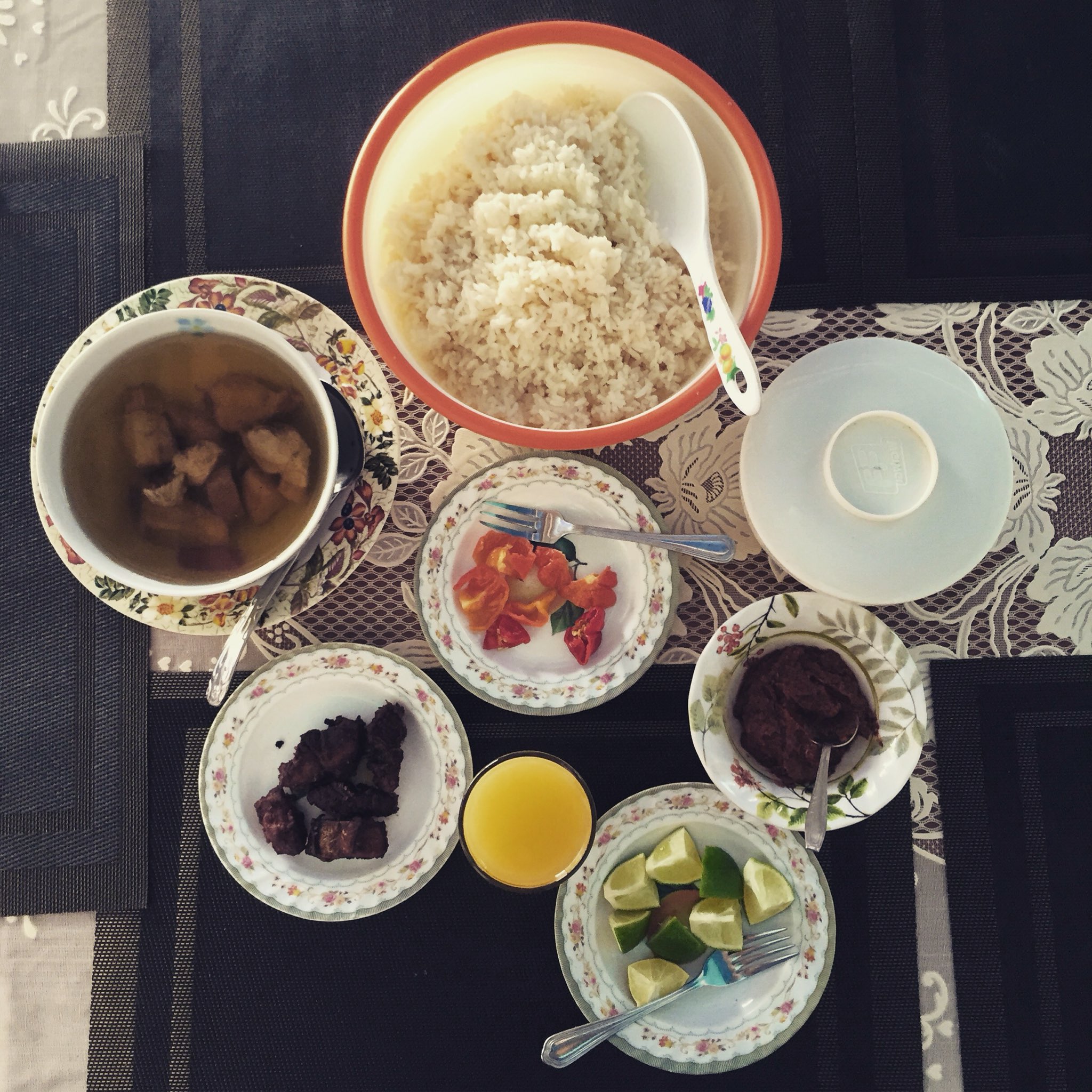
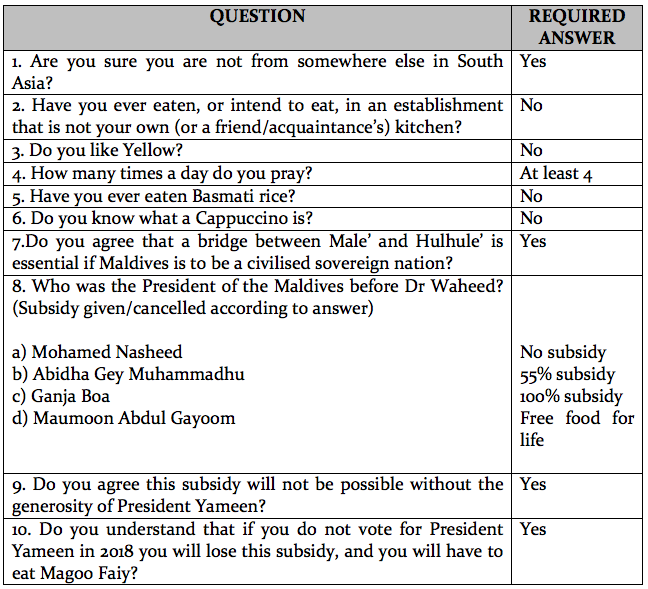
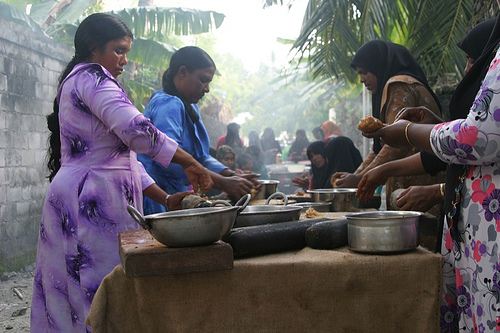
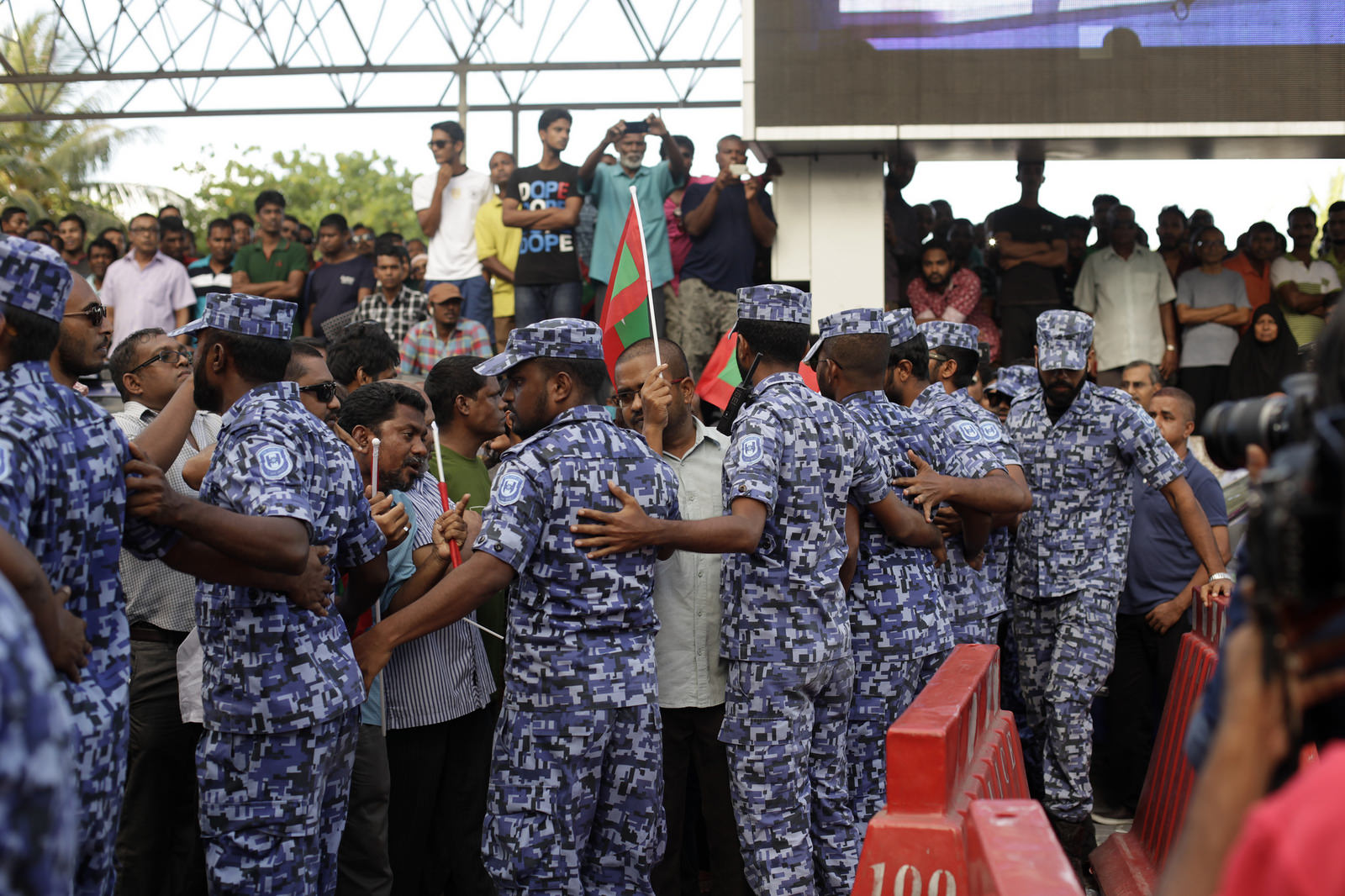 Although the Maldives’ luxury tourism industry is ostensibly segregated from the country’s politics, their connections run deep. In 2008, the Maldives began the project of democratisation with a new Constitution following street protests calling for democratic reform in September 2003 and August 2005. A modern tax regime was introduced, and tourism on inhabited islands was decriminalised to alleviate the widening socio-economic gap.
Although the Maldives’ luxury tourism industry is ostensibly segregated from the country’s politics, their connections run deep. In 2008, the Maldives began the project of democratisation with a new Constitution following street protests calling for democratic reform in September 2003 and August 2005. A modern tax regime was introduced, and tourism on inhabited islands was decriminalised to alleviate the widening socio-economic gap.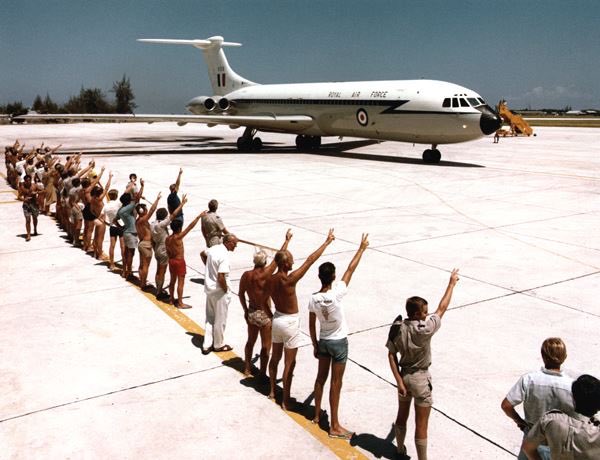 President Yameen described the secessionist movement in the south of the Maldives as the “biggest threat to national unity”, although British imperial ambitions in the Maldives were limited to its strategic location due to a lack of natural resources. Infighting among Maldivian royal families and domination of trade by Borah traders with the help of Imperial Britain paved the way for the Maldives to become a protected state.
President Yameen described the secessionist movement in the south of the Maldives as the “biggest threat to national unity”, although British imperial ambitions in the Maldives were limited to its strategic location due to a lack of natural resources. Infighting among Maldivian royal families and domination of trade by Borah traders with the help of Imperial Britain paved the way for the Maldives to become a protected state.